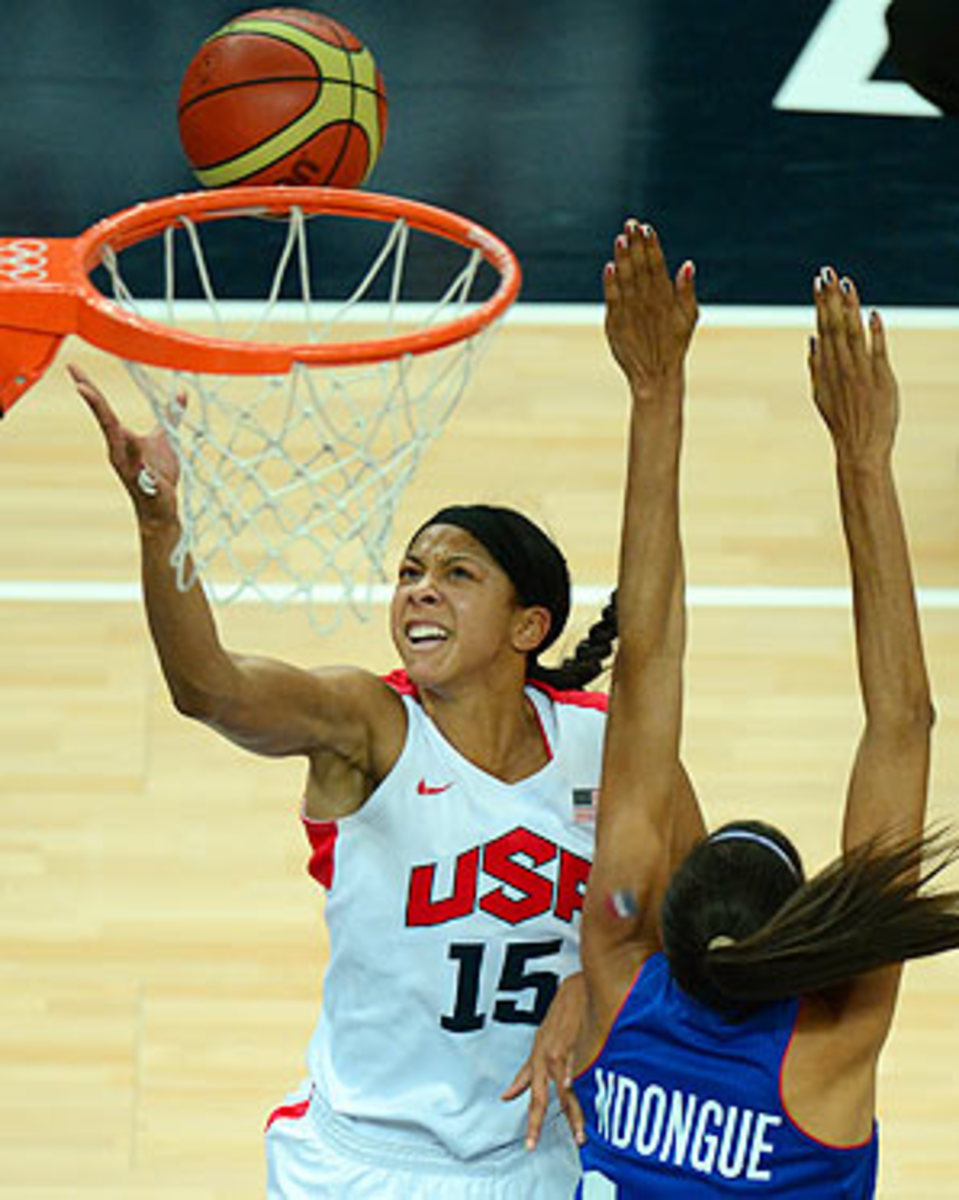Amid 40th anniversary of Title IX, women set new standard in London


LONDON -- Sixteen years ago, we had an American sorority party in Atlanta. At those 1996 Olympics, the U.S. women's teams won gold medals in softball, soccer, gymnastics and basketball. Those Games were deemed the "Summer of the Women" and were taken as a ringing validation of Title IX -- the first generation born into a world where women were legally granted equal access to sports was reaping the dividends.
Here in London -- in the same summer that the 40th anniversary of Title IX has been celebrated -- the Girl Power celebration has continued. Without the benefit of home crowds or the host advantage present in Atlanta.
In the intervening years since the '96 Olympics, Title IX has been hotly debated and the target of reform. The state of college sports has been -- rightly -- decried, as a morally bankrupt institution.
But the story of the London Olympics is that something right is happening in our collegiate athletic and youth programs that are the primary feeder system for Olympic sports. And that Title IX and its beneficiaries aren't going anywhere. The law continues to reap dividends for Americans and its impact is spreading around the globe.
For the first time Team USA included more women than men. And they're coming home the richer for it. The U.S. women have won 58 medals to the men's 45 and 29 gold medals compared to the men's 17.
Women are succeeding in traditionally popular disciplines like gymnastics and swimming. And in new events like women's boxing. American female gold medalists come in all shapes and sizes: diminutive Gabby Douglas, powerful Abby Wambach, sturdy Kayla Harrison, ripped Allyson Felix. They come in all personalities: bubbly Missy Franklin, controversial Hope Solo, fierce Serena Williams.
They are athletes to be celebrated. The evolution is that now -- more so than in Atlanta -- they are being lauded for their power and performance more than their social significance.
But the cultural piece is still in play, notably in other countries. Great Britain is in love with its own women athletes like Jessica Ennis and Lizzie Armitstead. The local citizens turned out in record numbers to watch women play football at Wembley Stadium. The most famous athlete in Ireland is boxer Katie Taylor, whose fights here drew crowds of more than 10,000 to big screens set up in Ireland.
Still, the Olympics are still not an equal world. Yes, every participating country had a woman on its team, for the first time ever. That's a big bragging point for IOC President Jacques Rogge, though he can't find a way to reinstate softball and only has room for one female member on his executive board. The women on the Saudi Arabia team walked behind their male members and have been called prostitutes at home. The Japanese women's soccer team flew here in coach, while the men (who did not make it to the gold medal game) were upgraded to business class.
And it's not just other countries that find ways to belittle their women athletes. Douglas had to deal with a debate about her hair while winning gold. Lolo Jones was criticized for actually attracting too much attention and making too much money in endorsements. The U.S. basketball team -- which just won its fifth straight gold medal -- was almost completely ignored because they were deemed to be too dominating.
At least the basketball players, unlike the soccer players, have a place to ply their trade when the Olympics end. And at least both get to play here, unlike the softball players who are still left on the outside.
Coach Geno Auriemma, who has helped elevate women's sports in America, was irritated that the preseason college football poll could make an international edition of an American newspaper, but his team's domination of China wasn't mentioned.
"We really don't care," Auriemma said. "We're not running around burning our bras trying to make people believe in our team. We just play basketball and whether anybody cares or writes about it, there's nothing we can do about it. We're not in the p.r. business. We're in the basketball business and we're pretty damned good at it."
More and more women athletes from around the globe are in the sports business. They're proving that they're pretty damned good at it.
And only getting better.
